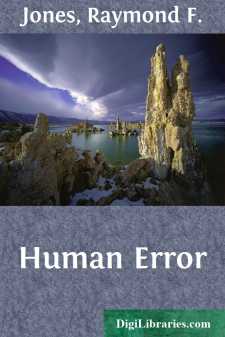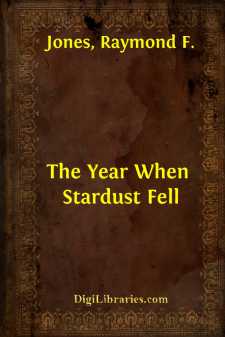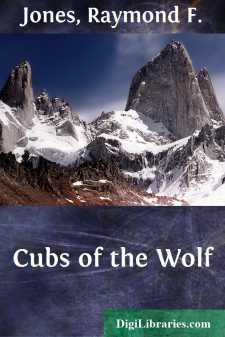Categories
- Antiques & Collectibles 13
- Architecture 36
- Art 48
- Bibles 22
- Biography & Autobiography 813
- Body, Mind & Spirit 142
- Business & Economics 28
- Children's Books 17
- Children's Fiction 14
- Computers 4
- Cooking 94
- Crafts & Hobbies 4
- Drama 346
- Education 46
- Family & Relationships 57
- Fiction 11829
- Games 19
- Gardening 17
- Health & Fitness 34
- History 1377
- House & Home 1
- Humor 147
- Juvenile Fiction 1873
- Juvenile Nonfiction 202
- Language Arts & Disciplines 88
- Law 16
- Literary Collections 686
- Literary Criticism 179
- Mathematics 13
- Medical 41
- Music 40
- Nature 179
- Non-Classifiable 1768
- Performing Arts 7
- Periodicals 1453
- Philosophy 64
- Photography 2
- Poetry 896
- Political Science 203
- Psychology 42
- Reference 154
- Religion 513
- Science 126
- Self-Help 84
- Social Science 81
- Sports & Recreation 34
- Study Aids 3
- Technology & Engineering 59
- Transportation 23
- Travel 463
- True Crime 29
Raymond F. Jones
Raymond F. Jones was an American science fiction writer known for his contributions to pulp magazines and novels in the mid-20th century. He is best remembered for his novel "This Island Earth" (1952), which was adapted into a well-known 1955 science fiction film. Jones's work often explored themes of advanced technology, space exploration, and the consequences of scientific progress.
Author's Books:
Sort by:
by:
Raymond F. Jones
During its three years' existence, the first Wheel was probably the subject of more amateur astronomical observations than any other single object in the heavens. Over three hundred reports came in when a call was issued for witnesses to the accident that destroyed the space station. It was fortunately on the night side of Earth at the time, and in a position of bright illumination by the sun. Two...
more...
by:
Raymond F. Jones
Of Men of Science The story of man is the story—endlessly repeated—of a struggle: between light and darkness, between knowledge and ignorance, between good and evil, between men who would build and men who would destroy. It is no more complicated than this. That light, knowledge, good, and constructive men have had a small edge in this struggle is attested to by our slow rise over the long...
more...
by:
Raymond F. Jones
This was the rainy year. Last year had been the dry one, and it would come again. But they wouldn't be here to see it, Captain Louis Carnahan thought. They had seen four dry ones, and now had come the fourth wet one, and soon they would be going home. For them, this was the end of the cycle. At first they had kept track of the days, checking each one off on their calendars, but the calendars had...
more...
by:
Raymond F. Jones
In the spring the cherry blossoms are heavy in the air over the campus of Solarian Institute of Science and Humanities. On a small slope that rims the park area, Cameron Wilder lay on his back squinting through the cloud of pink-white petals to the sky beyond. Beside him, Joyce Farquhar drew her jacket closer with an irritated gesture. It was still too cold to be sitting on the grass, but Cameron...
more...
by:
Raymond F. Jones
BY RAYMOND F. JONES There is no enemy so hard to fight as a dull gray fog. It's not solid enough to beat, too indefinite to kill, and too omnipresent to escape. [Transcribers Note: This etext was produced from Analog Science Fact and Science Fiction February 1962. Extensive research did not uncover any evidence that the U.S. copyright on this publication was renewed.] Dr. William Baker was fifty...
more...






